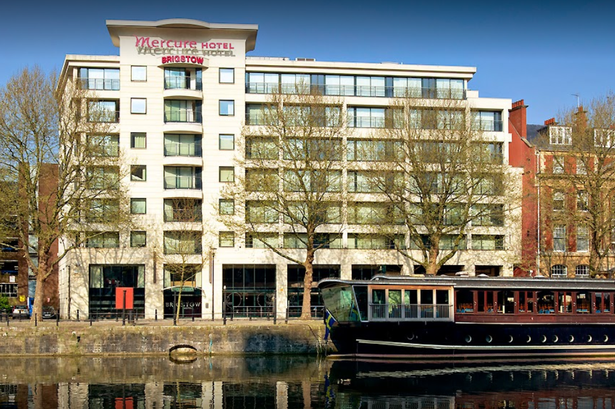The popular hotel is set for a major revamp The event takes place at the Mercure Brigstow Hotel
The event takes place at the Mercure Brigstow Hotel
A city centre hotel with a waterside location plans to increase its capacity by over 50 rooms.
Supreme Hotels LLP has submitted a bid to extensively remodel and refurbish the Brigstow Hotel on Welsh Back, increasing its room count from 116 to 174.
The proposals, which focus on internal reconfiguration rather than external expansion, aim to reposition the hotel to better serve both visitors and the local economy.
The planning application outlines a series of changes to the existing building, including a reconfiguration of the internal layout and formation of a lightwell within the existing structure, according to the planning statement.
These works will take place entirely within the existing building’s footprint, ensuring the project maintains the external character of the property and its setting within the City and Queen Square Conservation Area.
The proposals include the conversion of part of the ground floor into a new commercial unit, which will be able to operate independently of the hotel.
This is expected to enhance the site’s contribution to the local area, both commercially and socially.
As detailed in the design and access statement, proposed improvements include better accessibility, sustainability, and energy efficiency.
These include the infill of the mezzanine atrium to provide an additional guestroom floor, installation of a third lift, and enhancements to waste management and cycle storage facilities.
The internal lightwell is a key design element, intended to bring natural light deeper into the hotel’s interior, improving the quality of accommodation and public spaces.
Despite its location next to the Grade II listed West India House and within a designated conservation area, the application argues that the development poses ‘no additional impacts to the character or appearance of the conservation area or to the setting of listed buildings’.
This view is echoed in the Heritage Statement, which notes that while ‘care and attention to detail’ in materials and methods is vital, the scale and nature of the changes are not considered harmful.
Bristol City Council’s pre-application advice acknowledged the general acceptability of the proposal, noting that it is consistent with the principle of sustainable development under the National Planning Policy Framework.
The scheme also aligns with local development policies aimed at promoting high-quality urban design and supporting the city’s visitor economy.
The application adds: “Notwithstanding this, the proposal will also deliver significant benefits in bringing a vacant city centre building back into economic use, and a use that given its city centre location will directly support the local business and visitor economy and well as providing direct employment opportunities.”
